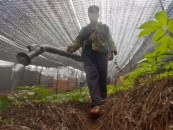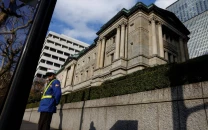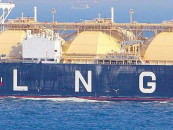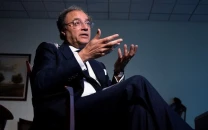Stabilisation measures and politics
In current political scenario, timing of stabilisation steps is vital

Media commentators, analysts and economists provide a range of interpretations for the current economic situation in Pakistan.
On the one hand, there is talk of a V-shaped economic recovery, which means that the recovery is quick and the economy will achieve the pre-Covid level quickly. On the other hand, a host of commentators are of the view that the recovery is muted based on heightened uncertainty associated with Covid-19 and plethora of governance failures.
Proponents of V-shaped recovery side with the government based on evidence of foreign exchange reserves of $19 billion, a relatively contained fiscal deficit and high remittances, which contributed to a surplus in the current account balance.
On the other hand, critics are of the view that the foreign exchange reserves are bolstered under the International Monetary Fund (IMF) programme and timing to curtail the deficit is not adequate keeping in view the emerging situation. In addition to that, increased remittances are short-lived since expatriates are either returning or repatriating money through legal channels.
The Extended Fund Facility (EFF) of the IMF took a back seat during the imposition of Covid-19 lockdown since Pakistan got emergency cash assistance, which also helped in maintaining the foreign exchange reserves.
The government is trying to resume the EFF, which requires the fulfilment of certain pre-conditions. In this vein, electricity tariff has been revised upward and curtailed fiscal deficit will be targeted. The curtailment of deficit is linked with expenditure rationalisation and revenue enhancement.
Under the EFF, the government carried out demand compression where imports were curtailed in the first eight months of FY20. Then the Covid-19 lockdown was imposed, which sent the economy into a tailspin.
The opening up of the economy slightly improved the situation since the policy rate was brought down to 7% in quick successions and the real interest rate became negative.
The resumption of the IMF programme will require a positive real interest rate, which implies that the policy rate will increase.
Since July 2020, the rupee has gained around 2.5% against the US dollar. We may expect flexibility in the exchange range management, which may bring a downward adjustment in the rupee.
On the fiscal side, the government will not be able to loosen purse strings and revenue enhancement measures will be required. In addition, an upward adjustment in utility prices is expected.
The government spent the first year in seeking foreign assistance from friendly countries to ease foreign exchange constraints while the second year was partly spent under the EFF and partly under Covid-19.
Now, it is preparing to resume the programme at a time when political temperature has already risen.
Political parties have started to gather under one umbrella. In addition, public servants have staged protest, demanding raise in their salaries. Under the emerging situation, a question may be posed: is the timing of austerity, revenue enhancement and upward utility adjustment right?
In the past, the economy has experienced macroeconomic stabilisation where the timing matters a lot. If the political situation is normal, stabilisation could be achieved with ease. When the political situation is far from normal, these measures exacerbate the political situation.
In certain cases, the political pressure and resistance have derailed stabilisation programmes. That was the reason the commentators called Pakistan a tranche economy.
Briefly, the economy has slightly improved where double-digit inflation is staring in the face. Specifically, food inflation has posed serious challenges, which directly impacts the masses.
Pressure is continuously building on the government to provide relief to the masses. It seems that the government has to walk on the tight rope to balance macroeconomic stabilisation and politics.
The writer is an assistant professor of economics at SDSB, Lahore University of Management Sciences (LUMS)
Published in The Express Tribune, October 12th, 2020.
Like Business on Facebook, follow @TribuneBiz on Twitter to stay informed and join in the conversation.



















COMMENTS
Comments are moderated and generally will be posted if they are on-topic and not abusive.
For more information, please see our Comments FAQ